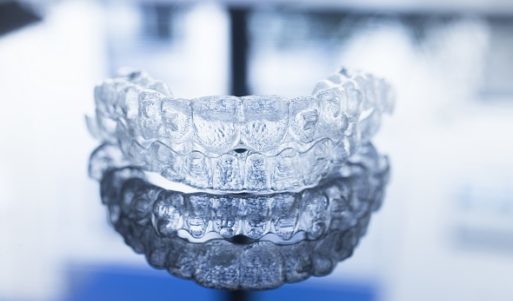 You might think to yourself that our suggestion for you to receive bruxism treatment is probably a bit too much. A lot of people clench their teeth when they are upset, after all! Some people grind here and there out of habit. Unfortunately, these types of occasional acts are far different from the chronic habit you’ve been experiencing (and yes, we know you aren’t even aware you’re doing it). The great news is that we can help you control the issue, so you don’t end up suffering from one of the many common types of damage associated with bruxism. Consider some of those side effects for a clear understanding.
You might think to yourself that our suggestion for you to receive bruxism treatment is probably a bit too much. A lot of people clench their teeth when they are upset, after all! Some people grind here and there out of habit. Unfortunately, these types of occasional acts are far different from the chronic habit you’ve been experiencing (and yes, we know you aren’t even aware you’re doing it). The great news is that we can help you control the issue, so you don’t end up suffering from one of the many common types of damage associated with bruxism. Consider some of those side effects for a clear understanding.
Erosion
Erosion means the wearing away of your tooth tissue. This will begin with your enamel, which is the outermost portion of each tooth. The layer is very strong and protects your tooth, keeps it comfortable, and allows the important internal life center of your tooth to remain undisturbed. When erosion occurs, you might experience problems (including teeth that do not break down food very well).
Sensitivity
About that enamel! When you avoid bruxism treatment and your enamel becomes worn, the protection you once enjoyed begins to disappear. The nerves within the deeper layers of your teeth become exposed, so your tooth becomes sensitive. Your tooth is also wide open to bacterial invasion, leading to decay and potential infection.
Tooth Loss
Unfortunately, when the constant pressure and friction associated with bruxism become too much, you can actually lose a tooth or multiple teeth. By skipping out on bruxism treatment, teeth remain exposed to consistent loosening.







